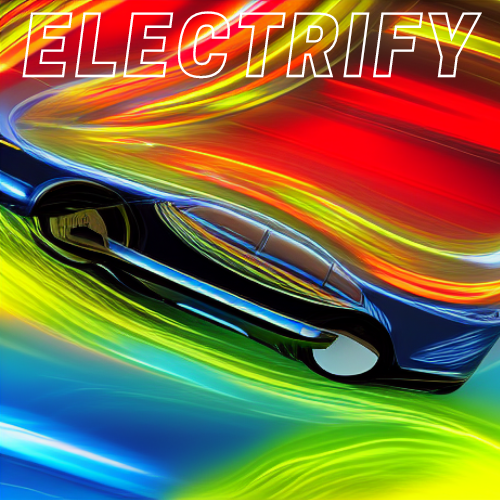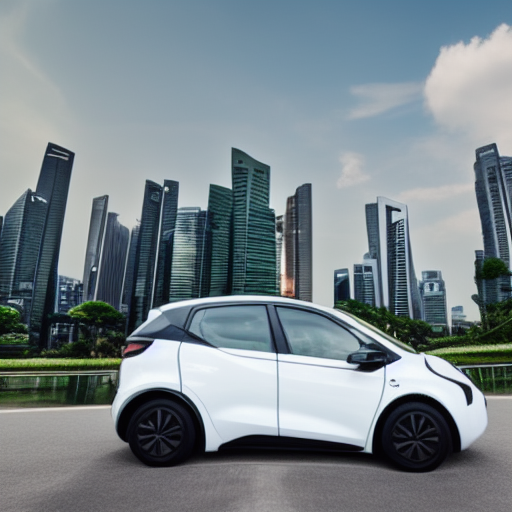Singapore’s Electric Vehicle Vision
Electric vehicles are a key part of Singapore's plan to reduce peak land transport emissions by 80% by or around mid-century. They emit half the amount of CO2 as compared to similar vehicles powered by internal combustion engines, and can help us reduce carbon emissions by 1.5 to 2 million tonnes if all of the country's light vehicles run on electricity.
Setting up charging infrastructure is crucial to get people to switch to electric vehicles, and Singapore is aiming for 60,000 EV charging points by 2030. Private companies will provide 40,000 of these in public carparks while the other 20,000 will be at private residences. Additionally, every HDB town will be an EV-Ready Town by 2025 -- meaning that approximately 2,000 carparks in each town will have charging points installed.
Singapore is dedicated to making its public transportation more environmentally friendly. By 2030, LTA will convert half of Singapore's bus fleet to electricity and achieve a completely emission-free bus fleet by 2040. We have already put 60 electric buses into service, with the intention of replacing 400 diesel vehicles with electric ones by 2025.
Approximately 7,840 tons of CO2 tailpipe emissions are expected to be eliminated each year thanks to these 60 electric buses. This is the equivalent carbon dioxide emissions of 1,700 automobiles per year. Our taxi fleet operators have also committed to transitioning at least half of their total fleets to electric vehicles by 2030.
EV Road Map
To increase EV adoption in Singapore, LTA will focus on four areas – vehicle taxes and incentives, regulations and standards, EV charger deployment and industry partnerships.
Vehicle Taxes And Incentives
LTA implemented a downward revision in road tax for electric vehicles as of January 2021. The goal is to make it more appealing to own and drive electric vehicles by offering incentives and discounts such as the EV Early Adoption Incentive (EEAI) and Vehicular Emissions Scheme (VES), which aim to narrow the cost gap with ICE cars. These incentives will reduce the initial acquisition costs of an electric automobile by up to $45,000.
Regulations And Standards
The Technical Reference 25 (TR 25) governs the EV Charging System in Singapore and has undergone review by a joint public-private working group.
EV Charger Deployment
Public Carparks
By 2025, charging points will be installed in almost 2,000 HDB carparks, making every HDB town EV-ready.
Private Premises
Installing charging stations for non-landed private residences, such as condominiums and private apartments, might be difficult because the number of people who own EVs is likely to be low. An EV Common Charger Grant has been created to encourage charger installation in these carparks, as an incentive to get the ball rolling on shared charging infrastructure.
If you live in a private residence, talk to your property owner or Management Committee about getting approval for an EV charger. If you have a landed property, get help from Licensed Electrical Workers (LEW) and equipment specialists to install an EV charger at your place or find an EV Charging Operator.
Shell, ComfortDelgro Engineering and SP Mobility are a few of the electric vehicle charging operators currently servicing areas all over Singapore, such as petrol stations, malls, office buildings and industrial estates.
Carparks in New Developments
Singapore is following closely the progress of EV adoption and planning for electrical capacity accordingly. This way, we can be sure that new developments will have enough power to support EV charging in their car parks. Some of these upcoming projects include HDB towns, commercial buildings and private residences like condominiums.
Industry Partnerships
Singapore welcomes businesses to set up their operations here as we begin a drive to electrify our land transportation network. This will be an excellent opportunity for businesses to take advantage of possibilities in the area. Companies may engage in a variety of activities in Singapore, including product research and development (R&D), manufacturing, and headquarters services.
Today, Singapore is home to a variety of mobility firms, including automobile OEMs like Hyundai and mobility service providers like Grab and Motional. Electronics and component suppliers like Infineon, DuraPower, Borgwarner, Continental, and Denso are also located here. TES and SMA are two local firms that recycle lithium-ion batteries in Singapore to ensure that valuable resources are recovered.
Our EV ecosystem is supported by a long list of public research institutions, particularly in the field of battery R&D. ERI@N, SUTD, and A*STAR are just a few of the leading institutes that conduct R&D into new lithium-ion battery designs and materials as well as next-generation batteries such as solid-state batteries.

